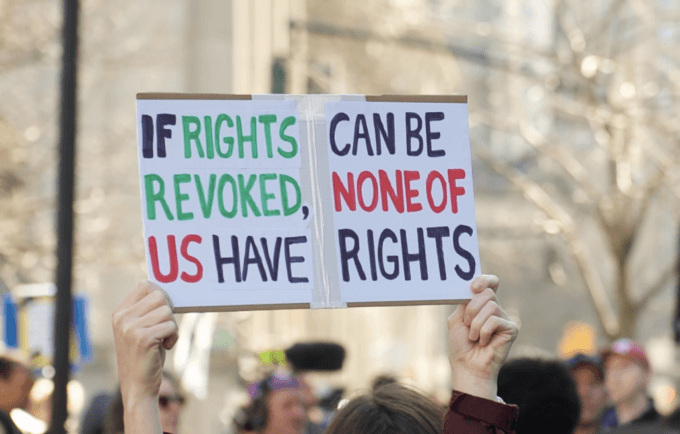March 21, 2025
Henry Giroux
Introduction
The abduction of Mahmoud Khalil is not an isolated event—it is a chilling testament to the authoritarian turn in the United States, where dissent is met not with debate but with brute force, and the machinery of state terror moves with ruthless precision. In his own words, Khalil, a Columbia University graduate, an activist for Palestinian freedom, and a permanent U.S. resident, was seized by ICE agents without warning—handcuffed, dragged from his apartment lobby, shoved into an unmarked black car, and disappeared. In minutes, his rights were violated and his body made vulnerable and disposable. Khalil instantly became another casualty in the Trump administration’s escalating war against those who refuse to kneel before its politics of white supremacy, settler-colonial violence, ominous threats, and unchecked lawlessness. His disappearance is both a precedent and a warning—a stark reminder that in regimes built on repression, silence is coerced, and resistance is a crime.
Henry Giroux
Introduction
The abduction of Mahmoud Khalil is not an isolated event—it is a chilling testament to the authoritarian turn in the United States, where dissent is met not with debate but with brute force, and the machinery of state terror moves with ruthless precision. In his own words, Khalil, a Columbia University graduate, an activist for Palestinian freedom, and a permanent U.S. resident, was seized by ICE agents without warning—handcuffed, dragged from his apartment lobby, shoved into an unmarked black car, and disappeared. In minutes, his rights were violated and his body made vulnerable and disposable. Khalil instantly became another casualty in the Trump administration’s escalating war against those who refuse to kneel before its politics of white supremacy, settler-colonial violence, ominous threats, and unchecked lawlessness. His disappearance is both a precedent and a warning—a stark reminder that in regimes built on repression, silence is coerced, and resistance is a crime.


